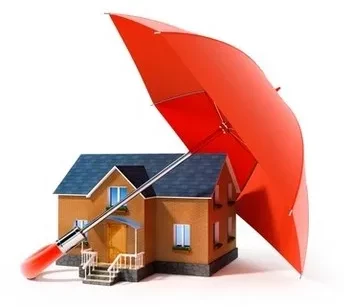Home Insurance Essentials: Protecting What Matters Most
Home is where the heart is, and protecting it is of utmost importance. Your home is not only a place of comfort and security but also a significant financial investment. Home insurance is the shield that safeguards your home and belongings from unexpected events. In this comprehensive guide, we will explore the essential aspects of home insurance, ensuring you understand the importance, coverage options, and how to choose the right policy to protect what matters most.
Understanding Home Insurance
What is Home Insurance?
Home insurance, also known as homeowner’s insurance, is a contract between you and an insurance company that provides financial protection for your home and its contents. It offers coverage against various perils, including fire, theft, vandalism, and natural disasters.
Why Do You Need Home Insurance?
The need for home insurance is undeniable. It offers a safety net for homeowners by providing financial assistance to repair or replace their homes and belongings when disaster strikes. Without insurance, the financial burden of these losses can be overwhelming.
Types of Home Insurance
There are different types of home insurance, including Basic, Broad, and Special Form policies. Each type provides varying degrees of coverage, and it’s crucial to choose the one that suits your specific needs.
Coverage Options
Dwelling Coverage
Dwelling coverage protects the structure of your home, including the walls, roof, and foundation. It ensures that you can repair or rebuild your home in case of damage.
Personal Property Coverage
Personal property coverage safeguards your belongings, such as furniture, electronics, and clothing. It’s essential to assess the value of your possessions to determine the appropriate coverage.
Liability Coverage
Liability coverage provides protection in the event someone is injured on your property and decides to sue you. It covers legal fees, medical expenses, and damages you may be liable for.
Factors Affecting Home Insurance Costs
Location
Your home’s location significantly impacts insurance costs. Homes in high-crime areas or regions prone to natural disasters may have higher premiums.
Home Value
The value of your home is a crucial factor in determining insurance costs. More expensive homes generally require higher coverage and, thus, higher premiums.
Home Age and Construction
The age and construction of your home play a role in insurance costs. Older homes may need more maintenance and could have higher premiums.
Choosing the Right Policy
Evaluating Your Needs
To choose the right policy, you must evaluate your needs and risks. Consider factors like your home’s location, your belongings, and your budget.
Comparing Policies
It’s essential to shop around and compare policies from different insurers to find the one that best suits your needs and budget.
Customizing Your Coverage
Many insurers offer customizable policies, allowing you to tailor your coverage to match your unique requirements.
Making a Claim
Filing a Claim
In case of an incident, you should promptly file a claim with your insurer. This initiates the process of getting the financial assistance you need.
The Claim Process
Understanding the claim process is essential to ensure you receive the compensation you’re entitled to. Be prepared to provide necessary documentation and cooperate with the insurer.
Tips for Lowering Premiums
Home Security
Investing in home security measures, such as alarms and security systems, can lower your insurance premiums.
Bundling Policies
Combining your home insurance with other policies, like auto insurance, can often result in significant savings.
Raising Deductibles
Opting for a higher deductible can lower your premiums, but be sure you can afford the deductible if you need to make a claim.
Home Insurance and Natural Disasters

Coverage for Hurricanes and Floods
Not all home insurance policies cover natural disasters like hurricanes and floods. You may need to purchase additional coverage for these specific risks.
Earthquake Insurance
For homeowners in earthquake-prone areas, earthquake insurance is a critical addition to protect against this unique threat.
Conclusion
Home insurance is a vital component of protecting your most significant investment – your home. Understanding the types of coverage, factors influencing costs, and ways to lower premiums empowers you to make informed decisions. By customizing your policy to your specific needs and location, you ensure that you have the protection you need, no matter what comes your way.
FAQs :
- What does home insurance typically cover?
Home insurance typically covers damage to your home and personal property due to perils such as fire, theft, and natural disasters. It also provides liability protection.
- How can I lower my home insurance premiums?
You can lower your premiums by improving home security, bundling policies, and raising deductibles. Shopping around for the best policy is also essential.
- Do I need additional coverage for natural disasters like floods and earthquakes?
Depending on your location, you may need to purchase additional coverage for specific natural disasters like floods and earthquakes, as they are often not included in standard policies.
- What is the claim process for home insurance?
When an incident occurs, you should promptly file a claim with your insurer. The insurer will then assess the damage and, if approved, provide compensation for the necessary repairs or replacements.
- How do I evaluate the value of my personal property for insurance coverage?
To evaluate the value of your personal property, create an inventory and calculate the estimated worth of your belongings, taking into account their replacement cost.




